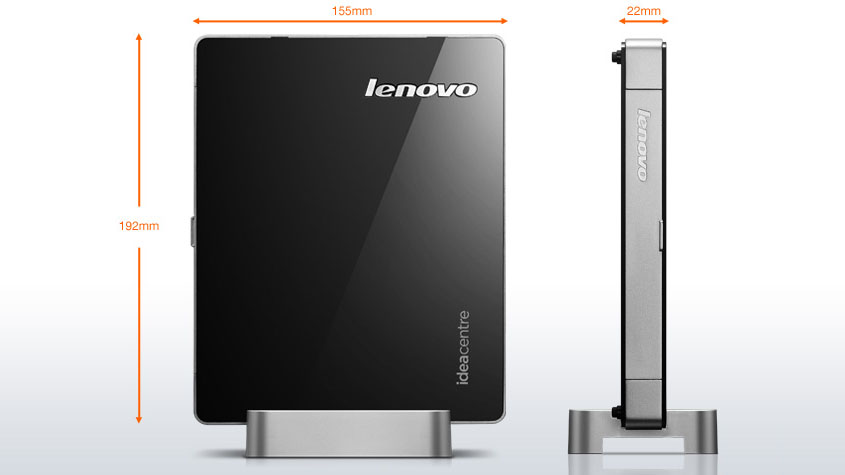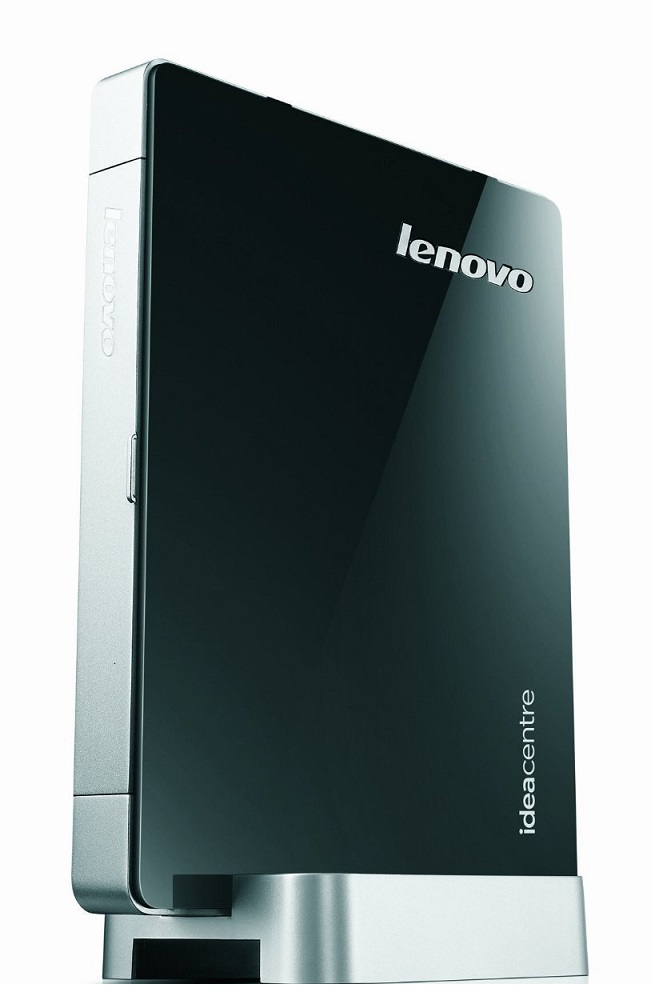Lenovo IdeaCentre Q190 review
With a minute form factor and an unbeliveably low price, is this PC too good to be true?

A useful machine in a small form factor, but the Q190 is perhaps better suited to be a media entertainment hub rather than a full-blown work machine.
-
+
Tiny form factor; Reasonable build quality; Breathtakingly cheap; Low power consumption
-
-
Lack of power; Little versatility; Few business features

Small form factor systems are popular in cramped offices because of the tiny footprint, efficiency and low-cost, but the IdeaCentre Q190 pushes the boundaries. The Q190 is just 22mm wide and starts at 250 inc VAT - with Windows 8 operating system included.
Tiny by design
The IdeaCentre has vital statistics of 192 x 155 x 22mm, so it'll fit into the slimmest of nooks and crannies. It weighs just 700g too. That's less than most laptops as well as plenty of Windows 8 business tablets, and it means this PC can be slung into a bag with little fuss as well as fitting into the smallest of spaces on the most craped of desks.
To keep the costs down, Lenovo used plastic instead of aluminium or steel. This means the build quality isn't great, with glossy plastic giving way under pressure from the finger and looks susceptible to scratches and scuffs. Ports and sockets are found at the front and rear of the machine, with two USB 3 sockets, four USB 2 ports, an HDMI output and six-in-one card reader all provided, with front-facing ports hidden behind a plastic flap.

The IdeaCentre has one major party piece the attachable DVD writer. It's the same size as the PC itself, and attached to the system using a small USB bridge that connects to the rear of the machine. It's a clever addition and makes this system even smaller. We can see why Lenovo has chosen to go down this route optical drives are less use now than ever.
We've asked Lenovo if it's planning to offer any other descrete accessories we'd like to see a port replicator or an external GPU able to be mixed and matched but,it's got no plans to do so.
Sign up today and you will receive a free copy of our Future Focus 2025 report - the leading guidance on AI, cybersecurity and other IT challenges as per 700+ senior executives
Mike Jennings has worked as a technology journalist for more than a decade and has been fascinated by computers since childhood, when he spent far too long building terrible websites. He loves desktop PCs, components, laptops and anything to do with the latest hardware.
Mike worked as a staff writer at PC Pro magazine in London for seven years, and during that time wrote for a variety of other tech titles, including Custom PC, Micro Mart and Computer Shopper. Since 2013, he’s been a freelance tech writer, and writes regularly for titles like Wired, TechRadar, Stuff, TechSpot, IT Pro, TrustedReviews and TechAdvisor. He still loves tech and covers everything from the latest business hardware and software to high-end gaming gear, and you’ll find him on plenty of sites writing reviews, features and guides on a vast range of topics.
You can email Mike at mike@mike-jennings.net, or find him on Twitter at @mikejjennings
-
 ‘Not a shortcut to competence’: Anthropic researchers say AI tools are improving developer productivity – but the technology could ‘inhibit skills formation’
‘Not a shortcut to competence’: Anthropic researchers say AI tools are improving developer productivity – but the technology could ‘inhibit skills formation’News A research paper from Anthropic suggests we need to be careful deploying AI to avoid losing critical skills
By Nicole Kobie Published
-
 CultureAI’s new partner program targets AI governance gains for resellers
CultureAI’s new partner program targets AI governance gains for resellersNews The new partner framework aims to help resellers turn AI governance gaps into scalable services revenue
By Daniel Todd Published
-
 Imperial College wants to train larger, more complex AI models – so it's teaming up with Digital Realty on a UK-first project
Imperial College wants to train larger, more complex AI models – so it's teaming up with Digital Realty on a UK-first projectNews Digital Realty’s Woking data center has been selected to run the project
By Emma Woollacott Published
